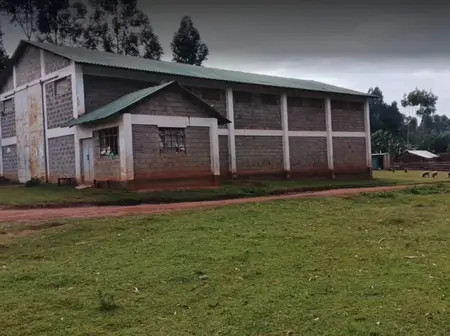A storm of corruption allegations is brewing in Kiminini Sub-County, Trans Nzoia county, where members of KISINA Farmers’ Cooperative Society accuse local agricultural officers of extortion.
According to the cooperative’s secretary, Daniel Chetambe Wamalwa, county officials have been demanding up to 50 percent of the cooperative’s earnings as kickbacks — a burden that risks crippling the very farmers the cooperative was established to support.
At the center of the scandal is a controversial withdrawal of KSh 90,000, which Wamalwa claims was handed to Sub-County Agricultural Officer, Enose Wamalwa.
The withdrawal was allegedly executed by the cooperative’s chairman, Mathias Barasa, and treasurer, Nixon Wekhela, despite constitutional requirements that all expenditures be backed by minutes of a general meeting.
What makes the matter murkier is that Barasa has since denied any involvement, even claiming that he is not a member of KISINA Cooperative — a puzzling assertion, given that his name, ID number, and phone contact appear in official minutes dated May 25, 2025.
“I am not part of any cooperative,” Barasa said during a phone call with Duncan Waswa. But documents tell a different story, leaving many to wonder: is Barasa lying, or is there a larger conspiracy at play?
Efforts to reach the agricultural officer at the center of the allegations, Enose Wamalwa, proved futile. Multiple calls over two days went unanswered. His silence only fuels suspicions among farmers who feel betrayed by the very officials meant to support them.
For members like Hussein Wasike, the issue goes beyond the KSh 90,000. He alleges that officers from the Kiminini agricultural office routinely send two representatives to the cooperative’s warehouse and demand to be paid KSh 1,500 each per day.
“These are county employees. Why should poor farmers be forced to pay them daily allowances on top of their salaries?” Wasike asks.
Meanwhile, the cooperative’s warehouse, which was meant to store and distribute subsidized fertilizer to farmers, is in a state of disrepair.
“We are struggling with a dilapidated office and inadequate facilities, yet KSh 90,000 goes to officers who are already salaried. This undermines the very mission of the cooperative,” laments Daniel Chetambe.
The scandal raises broader concerns about governance and accountability in farmer cooperatives across Trans Nzoia.
While KISINA may be the latest case to surface, members fear that other cooperatives could be silently bleeding under similar arrangements.
“If unchecked, this could turn farmer cooperatives into white elephants within the Ministry of Agriculture — enriching a few at the expense of struggling farmers,” Wasike warns.
In light of these revelations, members of the KISINA Cooperative are calling on Governor George Natembeya to intervene decisively. They also want the Ethics and Anti-Corruption Commission (EACC) to conduct a forensic audit of the cooperative’s books. Wamalwa and his group have pledged to testify if investigations are launched.
For smallholder farmers in Trans Nzoia, cooperatives like KISINA are lifelines — offering collective bargaining power, access to subsidies, and hope for better livelihoods. Yet, as this case illustrates, corruption threatens to erode trust and sabotage progress.
As the calls for accountability grow louder, one question remains: will authorities act to protect the farmers, or will this scandal be swept under the rug, leaving KISINA members to shoulder the cost of corruption?

Leave a Reply